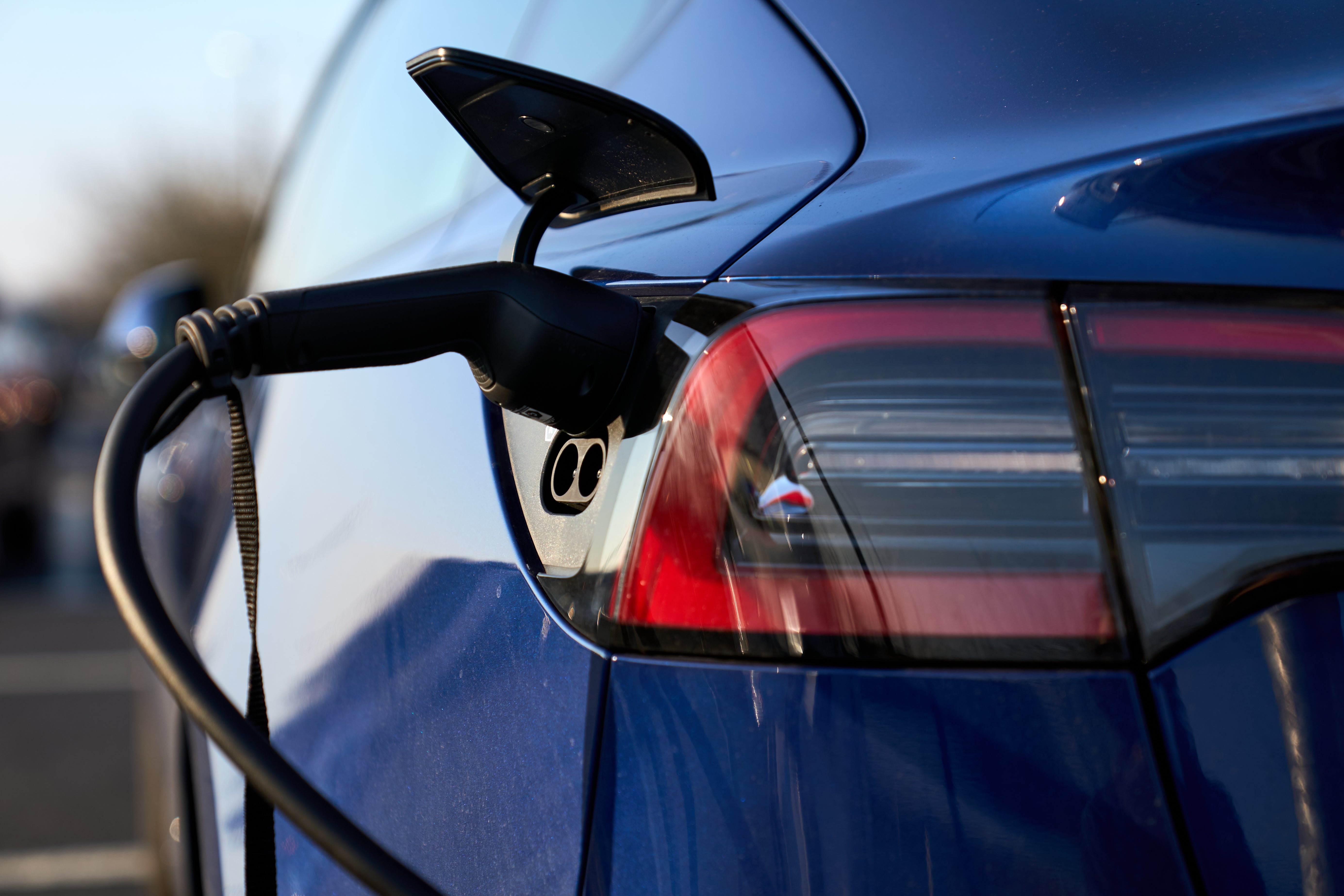Charging some electric cars ‘nearing cost of petrol’ due to energy crisis, RAC warns
Cost of charging electric vehicles nears price of petrol

Your support helps us to tell the story
From reproductive rights to climate change to Big Tech, The Independent is on the ground when the story is developing. Whether it's investigating the financials of Elon Musk's pro-Trump PAC or producing our latest documentary, 'The A Word', which shines a light on the American women fighting for reproductive rights, we know how important it is to parse out the facts from the messaging.
At such a critical moment in US history, we need reporters on the ground. Your donation allows us to keep sending journalists to speak to both sides of the story.
The Independent is trusted by Americans across the entire political spectrum. And unlike many other quality news outlets, we choose not to lock Americans out of our reporting and analysis with paywalls. We believe quality journalism should be available to everyone, paid for by those who can afford it.
Your support makes all the difference.The cost of charging an electric car has surged due to soaring energy prices, prompting fears that drivers will avoid buying them.
The RAC said charging an electric car using public charge points on a pay-as-you-go basis has risen by 42 per cent in just four months.
It said electric car (EV) owners who use “rapid” public charging points were paying almost the same for electricity as they would for petrol per mile.
The hike in price means drivers who only use the public network to charge vehicles pay around 18p per mile for electricity, compared to 19p a mile for petrol and 21p for diesel.
“For those that have already made the switch to an electric car or are thinking of doing so, it remains the case that charging away from home costs less than refuelling a petrol or diesel car, but these figures show that the gap is narrowing as a result of the enormous increases in the cost of electricity,” RAC spokesman Simon Williams said.
“These figures very clearly show that it's drivers who use public rapid and ultra-rapid chargers the most who are being hit the hardest.”
The government's support package for household bills, which will see typical bills limited to about £2,500 per year until 2024, would benefit drivers charging vehicles at home, Mr Williams added.
However, he warned those relying on public charge points and without driveways would face a “much bleaker picture”.
An AA survey of 12,500 drivers showed that rising domestic energy prices are putting many people off from switching to an electric car.
Some 63 per cent of respondents said the increase in home electric bills is contributing to them sticking with petrol or diesel models, while 10 per cent stated it was the “main reason”.
AA head of roads policy Jack Cousens said: “With domestic energy prices rising, drivers can be forgiven for believing switching to an EV will become expensive quickly.
“However, the reality is that even with the hike in domestic electricity costs, running an EV is considerably cheaper than a petrol or diesel car.”
Mr Williams of the RAC said the cap on wholesale energy prices for businesses, which will see bills cut by around half their expected level this winter, “should lead to some price reductions by charge point operators in the coming weeks”.
“But what EV drivers don't want to see is operators having to hike their charges next spring if wholesale costs keep climbing,” he added.
Charging vehicles at home can be cheaper than public chargers due to the way electricity is taxed, with the RAC calling for a reduction in VAT at public chargers from 20 per cent to 5 per cent, the level it is in the home.
“That would reduce the cost of an 80 per cent rapid charge by 7.91p to 55.38p per kWh, and an ultra-rapid charge by 7.99p to 55.95p per kWh and would not unfairly penalise those drivers who can't charge their cars at home,” Mr Williams said.



Join our commenting forum
Join thought-provoking conversations, follow other Independent readers and see their replies
Comments